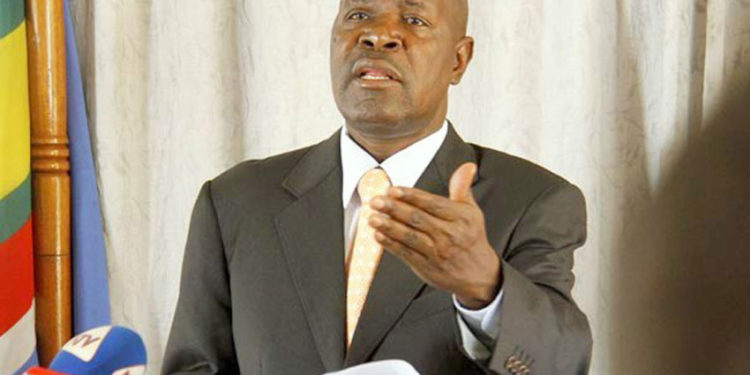As usual in matters of public policy there are mixed reactions including negative uproars over government’s decision to reopen schools on October, 15, 2020 starting with candidate classes of primary seven, senior four and six, and finalists in tertiary institutions and universities. Not surprisingly, the ubiquitous unsupported rudimentary arguments from some MPs opposing the resumption of schools don’t add much value towards a common clear end point.
In the meantime, the ministry of education continues to prepare for mass production and distribution of learning materials for the other classes so that home schooling continues until when full resumption is possible. Starting with candidates is aimed at allowing school managers learn the Covid-19 curve and effectively implement standard operating procedures, appraise if learners remember what they learnt before the closure, and compensate for lost time.
Part of the anxiety is from government’s lackluster approach in not providing a proactive and realistic appraisal of where we currently stand and headed that could end in disappointment. Firstly, from official data, cases of Covid-19 infections and deaths are on the rise and slowly spreading across the country than six months ago when schools were closed.
There is also little evidence that funding and physical infrastructure capacity has improved to match the desired SOPs of wearing face mask, regular and effective hand washing, sanitizing, cleaning hard surfaces, social distancing in classrooms, libraries, dining halls and dormitories. For the day scholars coming from different places of abode, it is even harder to imagine their safety considering uncontrolled and unavoidable interactions they experience daily.
Much harder is conducting effective surveillance, screening, tracking contacts and diagnostic in cases where symptoms are detected on a learner, school staff, visitor or parent. In any other the above, there is likely to be panic as parents rush to pick their children for the fear of the unknown. It is unreasonable for government to demand that private schools and institutions effectively comply with Covid-19 SOPs when its own schools are unable due to inadequate resources.
The desire to put the pandemic behind us makes sense, but the quandary aren’t going anywhere anytime soon, hence future plans must begin from this fact and life must continue. Like almost everywhere, the Uganda government has since May, been introducing gradual but measured steps to relax lockdown measures imposed on March 20, 2020 when Covid-19 was ravaging wildly in China, Europe and US. Since May government relaxed restrictions on hardware, shopping malls and arcades, personal vehicles, Boda Boda, and mass public transport, restaurants and hospitality industry. Therefore, the phased resumption of education calendar should be seen and supported as part of the delicate recalibration to get Uganda moving forward again. It is along these lines that Entebbe international airport and land borders are also due for opening on October 1st.
This first phase should help schools learn to manage smaller groups of students while implementing SOPs and government to provide needed logistical support to evaluate syllabus for conformity with Covid-19 to avoid an academic dead year. There is need to issue a detailed schedule to enable learners, parents and schools to prepare better including devising crash programs to recover lost time.
Worldwide over 31.2 million Covid-19 cases have been confirmed, with more than 980,000 deaths. The US has so far registered 200,000 deaths according John Hopkins University data. Inter-continental air travels remain restricted, curtailing world tourism and threatening economies across the board but particularly for third world countries that had lately come to depend so much on foreign tourists to bolster their incomes.
The lockdown was a necessary precaution based on available science and in good faith because no one at the time knew with certainty how Covid-19 would unfold. It is therefore unfair to suggest willful negligence, incompetence, malice, or lack of foresight by government as some critics claim.
With hindsight, some of the measures could have been imposed in panic as necessary precautionary measures done in good faith to protect the larger public from the unknown consequences of a pandemic whose origin and velocity continues to puzzle even the best of scientists.
While the education ministry has been sluggish in sustaining proactive engagement with stakeholders during the past six months of the lockdown, there shouldn’t be excuses for spreading fears against the resumption of schooling. Admittedly the resumption of schooling is causing stress to many people especially parents, students, school managers and proprietors, but it is necessary that we should all keep calm and take on the new challenges in stride.
Covid19 has wrought unfamiliar challenges across the world most especially on poor nations with very limited capacities in resources, technical ability and physical infrastructures like classrooms, dormitories, laboratories, libraries, water and sanitation facilities. As the education ministry continues to deepen the SOPs we all need to support the measures being proposed to facilitate the resumption of learning in institutionalized environment because this is the new normal and good for Uganda’s children. These and many more questions need to be answered satisfactorily in order to persuade a skeptical public into sending children back to schools.
Do you have a story in your community or an opinion to share with us: Email us at editorial@watchdoguganda.com











